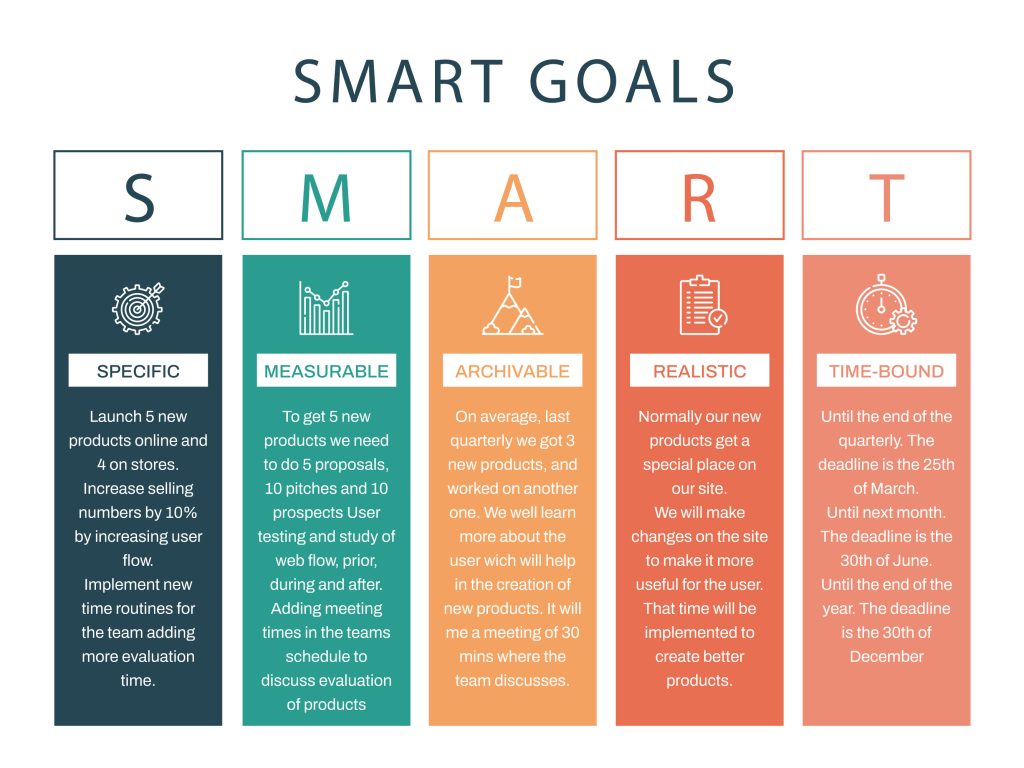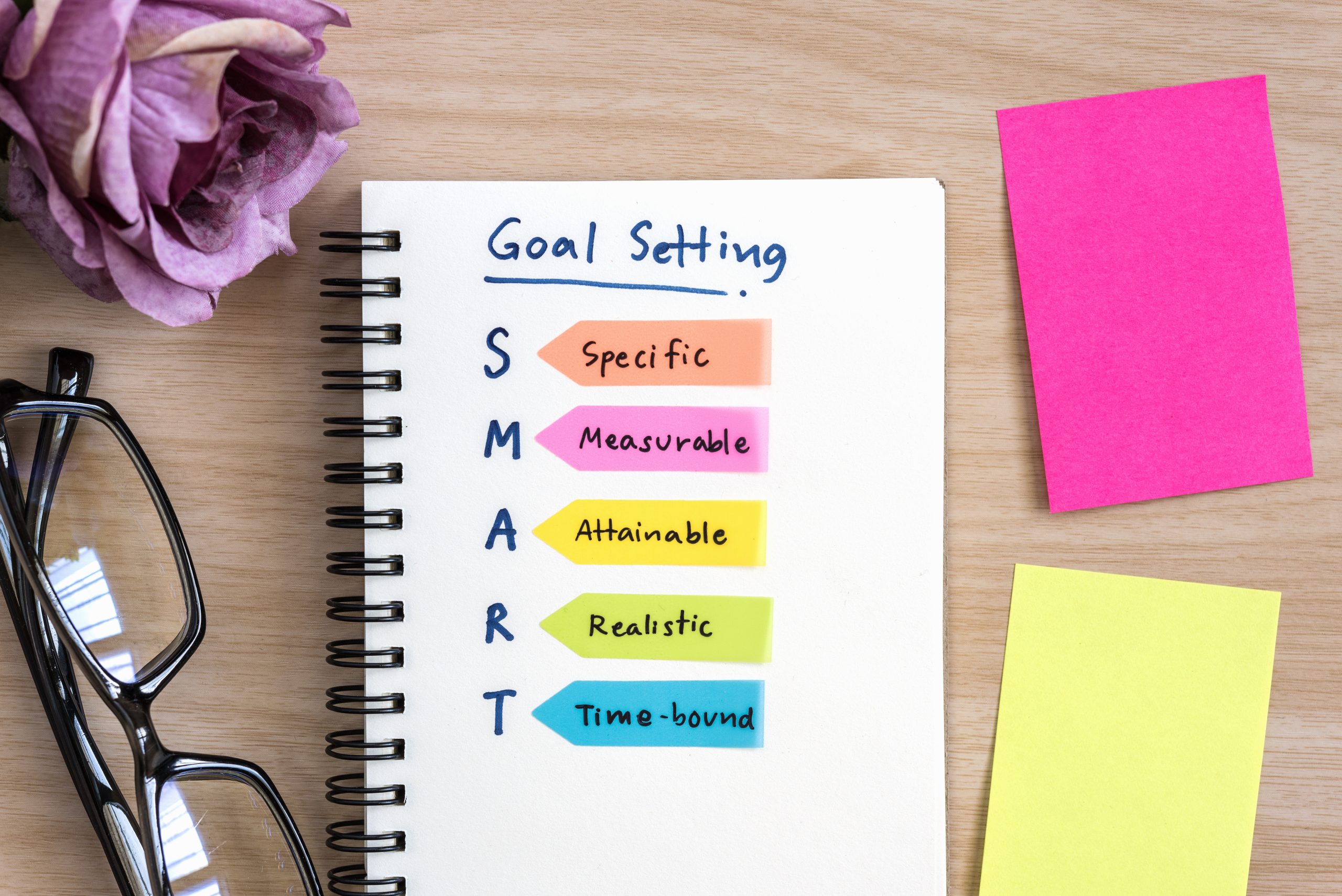In a world that constantly demands efficiency and productivity, setting well-defined goals is the key to unlocking your full potential. If you’re eager to make your aspirations a reality, you’ve come to the right place. Today, we’re delving into the realm of SMART goals – a strategic approach that propels individuals and businesses toward unparalleled success.
Whether you’re a seasoned professional, an aspiring entrepreneur, or someone simply looking to enhance personal growth, understanding and implementing SMART goals can pave the way to a purposeful and fulfilling life.
How to set S.M.A.R.T. Goals?
Goal-setting theories and studies have been around for quite some time, but we have George T. Doran to thank for the SMART acronym and its accompanying goal framework.

As mentioned in our New Year’s Resolution, Episode 1, podcast. You can start with a big dream, however, what you want to do is to break that goal down into smaller pieces. These little goals should be able to be attainable within a time constraint. If not, it is a great time to reflect if the goal was too hard or needed more time. Ideally, you want to succeed in reaching these goals with a feeling of accomplishment.
Here are some tips for writing a SMART goal:
- Keep it simple. Especially if this is the first time you are creating a SMART goal. Let’s say your goal is to drink more water. Some questions to ask yourself: “Is this a daily goal”, “How much water to drink per day”, “How long shall I challenge myself”, and “Will this goal be beneficial to my wellbeing”. A SMART goal will look like this: Drink an 8 oz cup of water a day, for one week. At the end of the seventh day, you can assess if this challenge was successful. And see if you want to continue for longer or add another cup.
- Ask the ‘Four Whys’: When you think of a goal, think of why that goal is important. And you try to answer why from those answers three more times to see if the goal is significant. Let’s consider the drinking water goal.
- Why is it important to drink water?
- Your answer is maybe, I don’t drink enough water.
- Why don’t you drink enough water?
- Answer: It is something I want to work on.
- Why do you want to work on drinking water?
- Answer: Drinking water will help with hydrating my body during winter.
- Why is drinking water during winter will help?
- Answer: My skin feels dry and I think it will help.
- Why is it important to drink water?
- Know your limits and be flexible. Setting attainable goals and being realistic will make your journey more enjoyable. Life is unpredictable and sometimes you might have to set aside or pause your SMART goal for another time. Don’t be afraid to adjust or reset your action plan if things aren’t working out.
- Write it down or make a note of your SMART goal. You can even put your goal on your smartphone, e-calendar, or planner, and set it as a reminder, with a deadline date. This way you can track your progress and minimize procrastination.
- Celebrate your milestone, when you complete your SMART goal. Make sure to reward yourself. A brief pause of recognition that you did it and you are amazing.
- Learn from setbacks, with a positive outlook. If you come to the end of your SMART goal and notice you didn’t complete it. It is an opportunity to learn from the journey. Take time to evaluate. Perhaps, you need to make the SMART goal more attainable, like drinking 4oz a day instead of 8oz.
Here are ten examples of SMART goals:
- Run a marathon,
- write a book,
- build a better relationship,
- start a side hustle,
- increase sales numbers,
- become a better manager,
- establish better communication at work,
- improve emotional regulation,
- wake up earlier, and
- learn a second language.
Whatever your goals are try to make a positive impact on your life. For one-to-one assistance on your SMART goals, book a session with Ranj Heer, Therapist on PsyMood. Ranj Heer is a Professional Therapeutic Counsellor, Life Coach; and recent Graduate from Rhodes Wellness.


.png)
.png)
.png)
Recent Comments